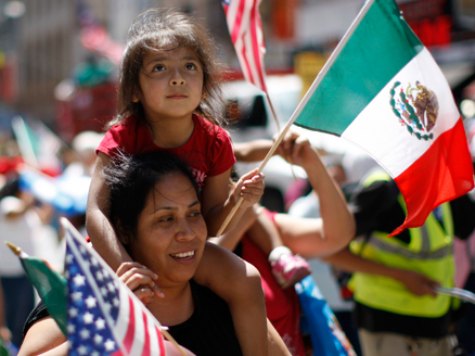Illegal immigrants are making it tougher for Americans–U.S.-born and immigrants–to achieve the American Dream, if it even exists at all, according to a study from a U.C. Davis professor.
Professor Gregory Clark writes that though the “United States seems to cherish an image of itself as a country of opportunity for all, a country that invites in the world’s tired, its poor, and its huddled masses,” the nation “can perform no special alchemy on the disadvantaged populations of any society in order to transform their life opportunities.” He concludes that “the American Dream was always an illusion” and “blindly pursuing that dream now will only lead to a future with dire social challenges.”
In an essay for Foreign Affairs, Clark writes regarding immigration that “there can be no doubt that immigration is widening social inequality in the United States.” America already has the most generous and liberal immigration policy in the world, and Clark found that “there is reason to believe that many recent migrants to both the United States and Europe will have a much more difficult time than their predecessors,” but policymakers often do not take that into effect because the “successful assimilation of earlier immigrants is often misunderstood.”
Because previous waves of immigrants to the United States “managed to achieve equality in income, education, and wealth with native populations within one or two generations,” policymakers, according to Clark, “have assumed that social mobility rates–the speed with which the children of families of low or high incomes, wealth, and education approach the average–are inherently rapid in modern societies, and that, as a result, any immigrant group was likely to assimilate quickly.”
But Clark found that “recent evidence suggests that, in reality, social mobility rates are extremely low” since “seven to ten generations are required before the descendants of high and low status families achieve average status.” Perhaps that is why polls have found that Americans would like to see a pause in immigration.
As Clark mentions, since the colonial era, “immigrant groups with a low social status at the time of their arrival historically had a more difficult time integrating.” He notes that immigrants who had French backgrounds, for instance, “despite having lived in the United States for multiple generations,” have “lower than average status in the United States.”
When examining “more recent immigrants to the United States,” Clark found that Africans, Chinese, Christian Arabs, Filipinos, Indians, Iranians, and Koreans were usually “from the upper echelons of their home societies” since, “due to visa restrictions, certain immigrant groups were permitted entry to the United States only if they could prove they had skills that were needed in the U.S. labor market.”
On the other hand, “groups who, for various reasons, did not face the same restrictions–including the Hmong, Latinos, and Maya–entered the United States with low social status and have struggled to achieve upward mobility since.”
According to Clark, “Washington faces an enormous policy challenge” given the “current patterns of immigration” because “two in five of all immigrants to the United States are from Mexico and Central America” and “by 2050, they are expected to be 39 percent.” He notes that it should not be a surprise that the “social status of Latinos, even those born in the United States, is persistently low,” because “migrants from Mexico and Central America tend to be negatively selected from their home populations: they are often the people who found themselves in such desperate economic circumstances at home that they preferred to live as illegal immigrants in the United States.”
In addition, according to Clark, “descendants of Latino immigrants are dropping out of high school at rates far in excess of the domestic population and the descendants of other immigrant groups” and “the Latino population is much less likely than those other groups to complete higher education.” Clark suggests the United States should consider “policies to increase the number of highly educated Latino immigrants” or the “United States is likely to soon have the unprecedented situation of fostering a semi-permanent underclass”:
Latino migrants are actually a very diverse group, with many of the most highly educated people emigrating to the United States from countries in South America that lie geographically farther from the United States, including Argentina, Brazil, Chile, and Peru. A program to boost the number of such educated immigrants could bolster the overall social status of the Latino population in future generations, and their representation in higher-status positions in the society.
Clark contends that “America has no higher rate of social mobility than medieval England or pre-industrial Sweden” and the ability of individuals to rise up the economic ladder is made worse when there is a flood of low-skilled immigrants.
“The status of your children, your grandchildren, your great grandchildren your great-great grandchildren will be quite closely related to your average status now,” Clark has said.

COMMENTS
Please let us know if you're having issues with commenting.